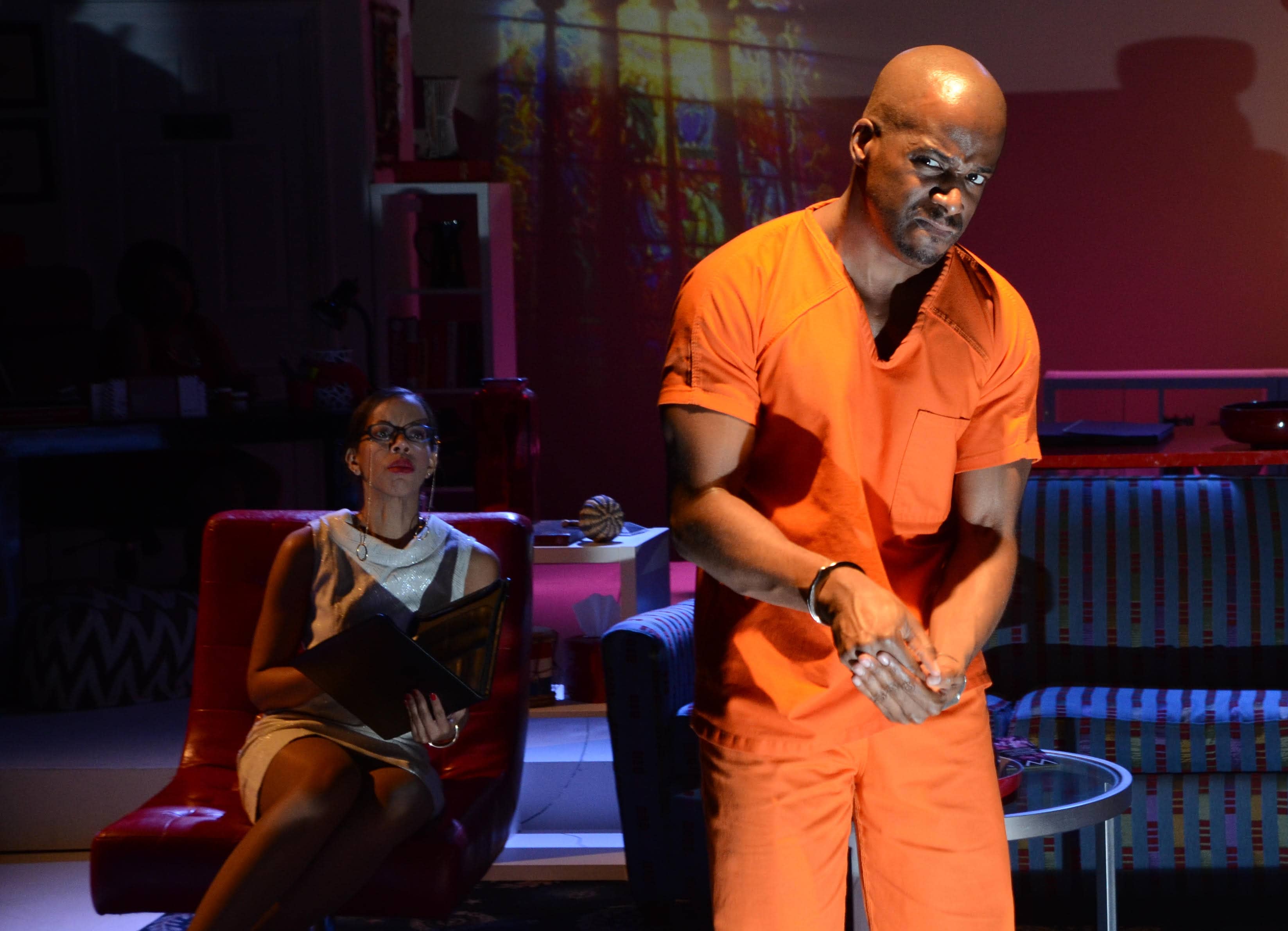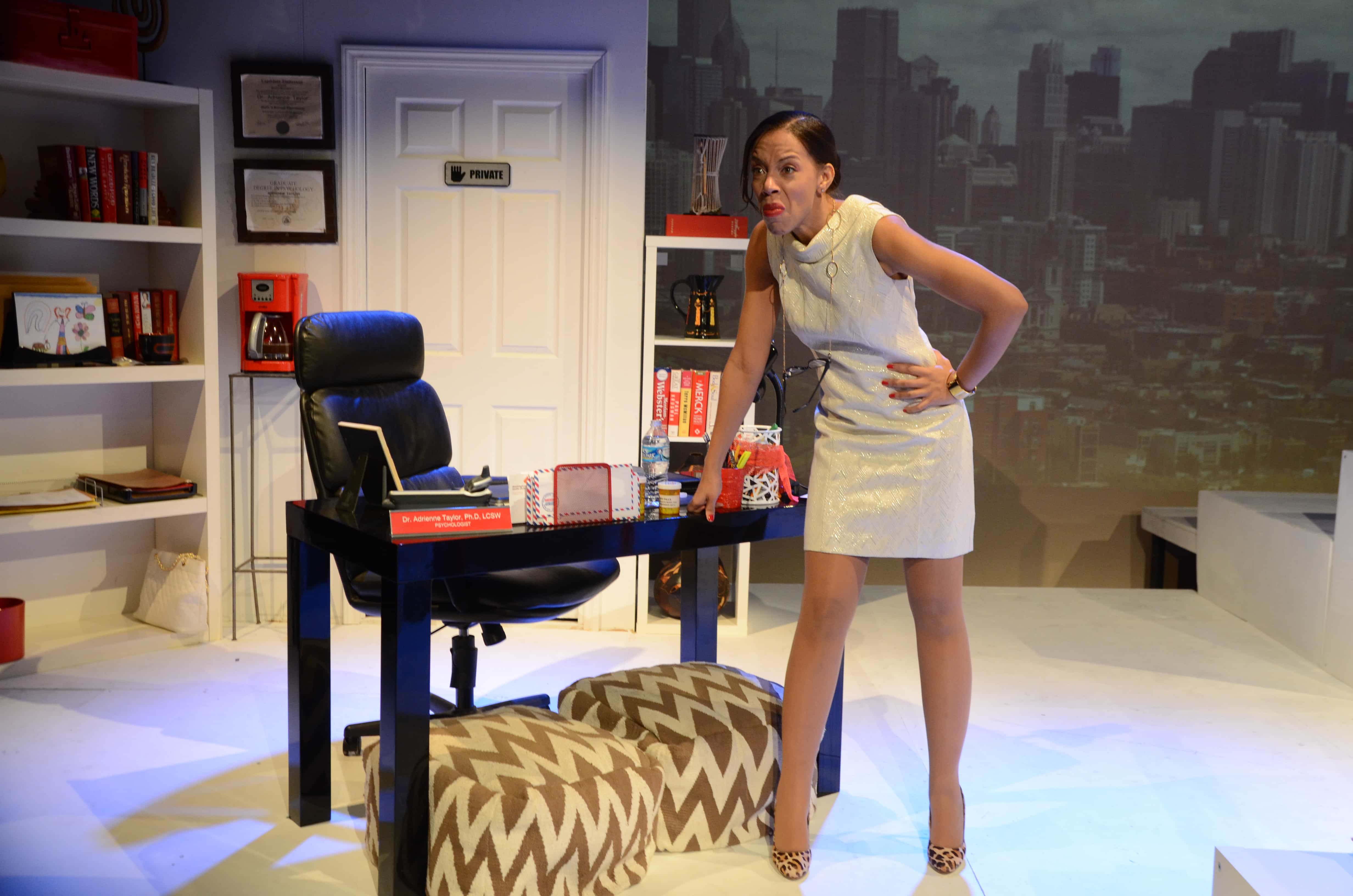When three hours in the theater elapse faster than many a 90-minute performance, it’s a good bet you’ve been in the thrall of a master storyteller. And that’s what happens in Chocolate Covered Ants, the hit play by Steven A. Butler. First produced by Restoration Stage in 2016 at Anacostia Playhouse and now remounted at THEARC, Chocolate Covered Ants pulses with electrifying candor about race, gender, and black fatherhood.
The title refers not to the exotic delicacy but to black men whose experience of white privilege is as being crushed underfoot like ants. During the two-act play, we hear the wrenching stories of six black men and the black woman who tries to understand them. Vividly performed and fascinatingly scripted, they come to seem to us as real as life. Their interrelated conflicts rivet us, making us care so much what will happen to them that we lose track of real time.

I heard much buzz about the first production but never got to see it. When this revival was announced, I jumped at it, not least because it was another chance to see the work of a playwright who had awed me already. When I saw his The Very Last Days of the First Colored Circus, I praised “Butler’s genius in crafting and combining all his character-driven narratives,” and I can now applaud Chocolate Covered Ants for the same reason.
Read my colleague Bob Ashby’s review.
The show begins with sirens and flashing police lights and six black men facing the audience. A voiceover shouts, “Hands up!” and they all yell, “Don’t shoot!” This jolt is followed by their breathless responses to that unseen white cop. One says:
I’m standing here with my hands up, praying that you will understand that—just like you—I have a family to go home to.
Another says:
You don’t have to fear me, my brother… You’re the one holding the gun.
Then each has a monolog, breathtakingly poetic, that takes us into his life. Still addressing that white cop but in a sense also all white people, the first says:
Let’s be honest. It’s not the hoodie that scares you. It’s what it covers up; what it hides underneath. It’s my nose that can smell your bullshit from a mile away. It’s my chocolate colored skin that doesn’t burn in the sun—and ages better than yours. It’s my eyes that with one piercing glance into yours can make you question your very well-being. It’s my lips that form words like ‘no justice; no peace!’ It’s my ears that can figure out every secret and plan you try to hide from us….
The scene shifts to the office of Dr. Adrienne Hilton Taylor, a psychologist who has been researching black women. To complete that project she is now studying black men, in particular, black men who grew up without their biological father. Her intent is to help black women understand what hurts in the hearts of the men in their lives. It is a promising premise that proves to have a powerful emotional payoff.

Dr. Taylor has arranged for five men deprived of their biological fathers to be interviewed and paid for their time. One by one they arrive, from different cities and walks of life, and each of their scenes with her becomes as engrossing as its own one-act play. Dr. Taylor’s sassy assistant, Michelle Pitts, provides much comic relief.
I won’t synopsize these characters’ narratives—which include Dr. Taylor’s own complicated relations with her ex and her father—because the play really surpasses the sum of its parts. And the succession of those stories—their artful aggregation, their surprising intersection—never lets our attention lapse and ultimately leaves us awestruck. Chocolate Covered Ants portrays personal dramas about individuated characters then connects them with shattering force. Taken together, Butler’s thematic scope, empathically drawn characters, and dynamic language have the heft and dimension of a classic. In worldview, voice, and form, Chocolate Covered Ants is a triumph. It belongs in the canon of contemporary plays produced across the country.

Running Time: Three hours with one 10-minute intermission.
Chocolate Covered Ants, presented by Restoration Stage, runs through October 28, 2018, at THEARC Black Box Theater, 1901 Mississippi Avenue SE, Washington DC. For tickets, call 202-714-0646 or go online.
The 20-page program for Chocolate Covered Ants can be viewed here.
Promotional video about Chocolate Covered Ants featuring castmember MarQuis Fair




